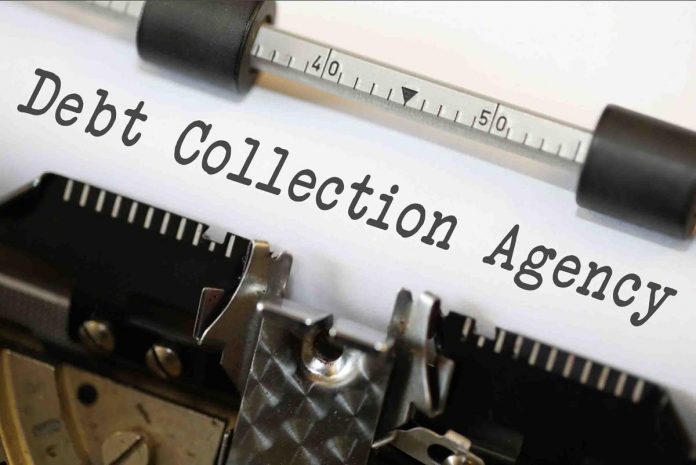A collection agency is a company that, without special powers, tries to collect outstanding debts on behalf of, mainly, other companies. In the year 2011, there were an estimated 444 collection agencies active in the Netherlands.
Creditors can either use incidentally or “subscribe” to the services of a collection agency.
A collection agency can provide its services for a fee that the creditor recovers from the debtor, whereby the collection agency tries to collect this fee in addition to the principal sum.

A collection agency can also purchase the entire claim by assignment or by establishing a lien. Notice to the debtor is required for an assignment. The collection agency itself becomes the creditor, and therefore runs a risk: if a collection agency is unable to collect a claim, for whatever reason (for example, a bankruptcy, successful defense or substantive arguments of the debtor), it will pay the purchase price for have lost the assignment. Few collection agencies use assignment.
There are also so-called debt traders who buy bad debts for low amounts (for example 25% of the nominal value) and then try to collect the full amount. Nowadays there are also websites that help creditors to find the right collection agency. On these sites, creditors can directly request multiple quotes for their collection instructions.
Often collection agencies state that they work on a no-cure-no-pay basis; this means that in cases where nothing is collected, no costs will be charged. This usually only relates to the phase in which the collection agency sends reminders; the costs of a bailiff and legal proceedings are therefore not included. It is, therefore, necessary to look carefully at the costs that are and are not covered by the no-cure-no-pay agreements.
A new development has arisen due to the financial crisis. By joining forces in a collection cooperative, collection services can be purchased at very favorable rates. In this way, the collection remains affordable, also for small businesses or associations.
Collection agency services
Domestic debt collection
What is an “extrajudicial collection procedure”? By this we mean: all activities to collect a claim without going to court. There is always a question of a claimant, a debtor/debtor and an amount to be claimed. Furthermore, every situation is different.

Debt collection abroad
Claiming a collection abroad requires extensive knowledge. For debt collection abroad you have to deal with a different culture, a different language and the legislation is also different. To be successful, a collection agency for debt collection abroad must not only be familiar with local legislation, but also the local market and business ethics.

Switch on bailiff. What does a bailiff do?
Opt for extra security by calling in the bailiff!
Do you no longer want to wait for the money you are entitled to? A bailiff is the only one authorized in the Netherlands to seize income, wages or salaries, bank balances or movable and immovable property. We may also proceed with the evacuation of homes and business premises. Therefore, call in the help of companies such as incassobureau.nl immediately and get to know our fast and decisive method.
A bailiff is a public official. The bailiff, therefore, has legal powers to enforce payment. He ensures that creditors receive the money they are entitled to according to the court. The bailiff enforces judgments. If someone has been sentenced by the court to pay an amount and refuses, the bailiff can and may, against the will of the convicted person, seize his assets, income, movable or immovable property. As a result of this seizure, the amount due can be paid and the judicial judgment has thus been enforced. The bailiff is the only person who can do this in the Netherlands.

Seize
If payment is not made, the bailiff with an enforceable title can seize. For example, companies can seize bank accounts, inventory, machines, and outstanding invoices. Private individuals can seize wages, benefits, savings, real estate, and movable property.

Call in a collection agency for private individuals
Situations in which you, as a private individual, need a collection agency.
As a private person calls in a collection agency, it happens more often than you think. Even as a private person there are countless situations in which you still have money from someone else. A well-known example is a private rental. In a time when you get little interest on your savings, more and more people are taking refuge in the purchase of real estate properties. After all, a house often retains its value or even becomes more valuable over time, while in the meantime you can obtain attractive income from renting this property. But what if the rent is no longer paid on an evil day? Then calling in a collection agency as a private person can be a good way to ensure that you still receive your money.
Even in the case of a non-repaid loan to a friend or family member, you can also hire a collection agency as a private person. However, it is important that you can submit documents and evidence before collection is made: for example, a contract (preferably drawn up at a notary’s office) including agreements on repayment. Letters, e-mails and other supporting documents that you can use to prove that you have asked for your money are also useful for presenting at the collection agency.

When can you, as a private person, engage a collection agency?
Building a file In principle, as a private individual, you can engage a collection agency under the same conditions as a company or institution. This means that you must be able to prove or substantiate the claim. Oral agreements are not demonstrable and therefore not handy to use to start a collection process. With only an oral appointment, you can really cut your fingers. If, on the other hand, you have papers with which you can prove that you have a claim, then you are already a lot stronger. Actually it applies to everyone (private or company) that you have to build up a good file before you can go to a collection agency. Save all documents related to the debt (agreements, reminders, e-mail and regular mail) and save them in a separate folder.










